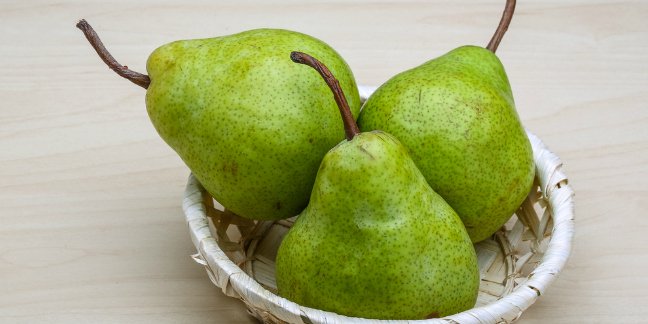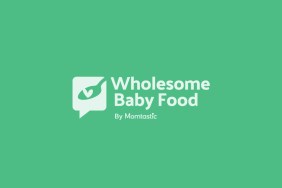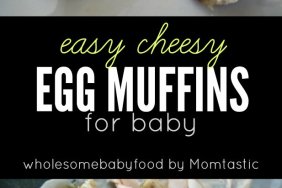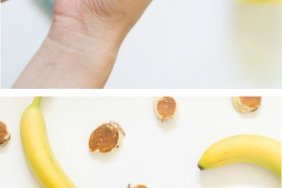Age for Introducing Pears to Baby: (as early 4 months) or 6-8 months 

Pears are high in fiber, potassium and Vitamin C. High in fiber, Pears like other fruits, are great aids in reducing the risks of cancer and heart attack and sustaining healthy cholesterol levels. They are also a great fruit to offer as a remedy to help alleviate baby’s constipation.
Pears are gentle on the tummy and thus are wonderful for babies who may be suffering from Reflux. Pears contain no sodium, saturated fats or cholesterol. They contain two types of sugars, glucose and fructose. A pear is very nutrient-dense meaning that there are more nutrients per calorie than calories per nutrient. There is no need to peel a pear unless feeding one to a small infant. A pear’s skin is easily digestible.
Nutritional Content of Pears: (one medium)
| VITAMINS:Vitamin A – 38 IUVitamin C – 7 mgVitamin B1 (thiamine) – .2 mg
Vitamin B2 (riboflavin) – .25 mg Niacin – .26 mg Folate – 12 mcg Contains some other vitamins in small amounts. |
MINERALS:Potassium – 198 mgPhosphorus – 82.4 mgMagnesium – 12 mg
Calcium – 15 mg Sodium – 0 mg Iron – .26 mg Also contains small amounts of selenium, manganese, copper and zinc. |
When can I introduce pears and pear baby food to my baby?
Pears make a good choice for one of Baby’s first fruits from (4) 6 months of age. As always, we recommend that you consult with your baby’s pediatrician on introducing solid foods as generalities may not apply to your infant.
How to select and store pears for baby food
 According to the EWG, pears are not one of the “dirty dozen” foods that are most highly contaminated with pesticides – purchasing organic is a personal, but smart choice.
According to the EWG, pears are not one of the “dirty dozen” foods that are most highly contaminated with pesticides – purchasing organic is a personal, but smart choice.
Pears do not ripen upon “the vine”. Pears are harvested from pear trees once they have reached maturity but prior to ripening. Bartlett pears are the only type of pear that actually changes color as it ripens. To ripen pears, leave them out on your counter or put them in a brown paper bag.
Store pears in the refrigerator in the coldest spot. As pears ripen from the inside outwards, a ripe pear will gently yield to the touch when pushed. A soft pear is likely indicative of over ripeness and may be close to rotting.
The best way to cook pears for baby food recipes – do pears really have to be cooked for baby food?
Pears do not need to be cooked as when they are ripe, they are very soft and easily made into a smooth puree.
Steaming fruits is typically recommended for babies under 8 months old to help breakdown sugars and fibers in fruits. However, as pears are gentle on the digestive system and very watery to begin with, use your own discretion based on your baby’s digestive system. If you will be offering pears as a baby food to an infant who starts solid foods prior to the age of 6 months old, please give pears a gentle steaming.
Perfect Pear Baby Food Recipes
Perfectly Pear Mash
Ingredients:
- 1 ripe pear
Directions:
Step 1: Peel and de-seed a fully ripened pear
Step 2: Mash or puree as needed for your baby’s preference
Step 3: Add cereal (if desired) to thicken up.
You may wish to steam pear chunks for a bit to soften them and enable easier digestion for a younger baby who starts solids at 4 months of age.
Breakfast Pear Parfait (8 months+)
Ingredients:
- 1/2 cup plain oat cereal (cooked)
- 1/2 cup pears – mashed or pureed
- 1/2 cup yogurt
Directions:
Step 1: Mix oatmeal and yogurt together
Step 2: Top mixture with 1/2 cup pear puree and stir
Optional: dash vanilla, pinch of ginger or cinnamon.
You can layer this for those babies who are beginning to use utensils or simply blend it all together
Pear Baby Food Recipe for Yummy Baked Pears
Ingredients:
- 3 Pears
- dash of cinnamon or vanilla or ginger
Directions:
Step 1: Preheat oven to 350F degrees
Step 2: Halve and core pears
Step 3: Place pears in a shallow baking dish with about 1 inch of water
Step 4: Add spices if desired.
Step 5: Bake approximately 25 minutes or until tender.
Step 6: Mash and serve mixed with Oatmeal Baby Cereal, Yogurt or even Chicken.
Baked Pears with Oatmeal & Dates (8 months+)
Ingredients:
- 3 Pears
- 1 cup cooked oatmeal
- 1/2 cup finely chopped dates
- drizzle of maple syrup (optional)
- dash of cinnamon or vanilla or ginger
Directions:
Step 1: Halve and core pears
Step 2: Combine oatmeal, dates & spices in 1 cups of water and bring to boil, simmer until soupy.
Step 3: Once soupy, pour over pears.
Step 4: Bake at 350 degrees F. 45 minutes or until tender; drizzle with syrup if desired
Foods Good to Mix with Pears to Make Your Own Pear Baby Food Recipes:
- Apples
- Avocado
- Bananas
- Blueberries
- Mango
- Peaches
- Sweet Potato
- Chicken
- Yogurt
![]() Remember, always consult with your pediatrician regarding introducing solid foods to your baby and specifically discuss any foods that may pose allergy risks for your baby.
Remember, always consult with your pediatrician regarding introducing solid foods to your baby and specifically discuss any foods that may pose allergy risks for your baby.
ORAL ALLERGY SYNDROME
Birch Pollen Allergies
Birch pollen allergies are associated with apple, carrot, cherry, pear, peach, plum, fennel, walnut, potato, spinach, buckwheat, peanut, honey, celery, and kiwifruit.
Cedar Allergies
Japanese cedar allergies are associated with melon, apple, peach and kiwifruit.
Mugwort Allergies
Mugwort allergies are associated with celery, carrot, spices, melon, watermelon, apple, hazelnut, and chestnut.
Grass Pollen
Grass pollen allergies are associated with melon, tomato, watermelon, orange, rice and cherry.
Ragweed Pollen
Ragweed allergies are associated with melon, chamomile, honey, banana, and sunflower seeds.
Latex
Latex allergies may be cross-reactive to banana, avocado, kiwi and papaya.



